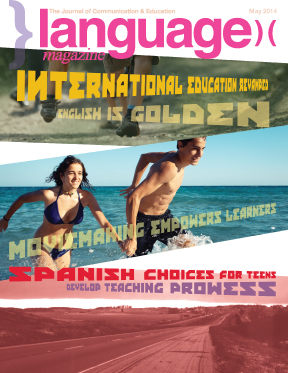Getting in the Culture Club
If the last 50 years are anything to go by, predicting the skills that will be needed ten years from now is a difficult task, so creating an education plan for the next 30 years or so must be nigh on impossible. But that’s what education boards, government committees, and thinktanks, amongst many others, are trying to do. This helps to explain why many descriptions of “21st-century skills,” which our schools are being asked to teach, sound vague — critical-thinking skills, higher-order thinking, and applying core knowledge, for example. However, there is one set of specific skills that will undoubtedly be valuable far into the foreseeable future — intercultural communication skills.
The ability to communicate effectively and empathetically across borders, be they international, social, or cultural, is already highly valued — the Great Schools Partnership lists “global and multicultural literacy” amongst its required 21st-century skills, and the Association for Supervision and Curriculum Development (ASCD) highlights the importance of “exhibiting positive interpersonal relationships that value multiple languages, cultures, and all persons.”
And as long as our thirst for faster and more vivid communication capabilities over greater distances continues, the demand for people with enhanced intercultural understanding will increase. But, how exactly are we going to meet this demand?
In an ideal scenario, every student would have the opportunity to benefit from dual-language education starting in kindergarten or earlier, have access to a lightning-fast internet connection with which they could FaceTime and Skype with their peers worldwide, and spend their summers at international camps in preparation for the study abroad phase of their higher education, be it just a semester or a complete program.
Total immersion through a study abroad program is the gold standard of intercultural education — a new report found that when asked to directly define the post-graduation value of study abroad, 90% of U.S. respondents and 88% of UK survey participants showed they connected this experience with attaining the edge they need to stand out when applying for jobs in the future (see “Broadening Horizons,” page 40). But study abroad is still the privilege of the fortunate and will remain out of reach for most children, despite the launch of programs like 100,000 Strong in the Americas (see page 39) which aim to help open the experience up to minority and low-income students.
Although it will never compare to the experience of physically living and studying in another country, “virtual exchange” is now an economically viable way of helping students develop their intercultural communication skills, and it is receiving some government support (see “Boosting Borderless Collaboration,” page 38).
But it is our own natural resource of diversity that must be fully appreciated and utilized if we are to endow the majority of students with the capacity for cross-border comprehension. Luckily, the U.S. has the asset of immigrant communities from all corners of the globe. Now, we need to fully recognize the benefit that this cosmopolitanism can bestow on the educational experience of all children by integrating minority language and culture classes into the mainstream curricula of our schools.
Reacting to local resources and incorporating them into the curriculum may fly in the face of the current obsession with standardization, but few can argue with the logic of making the most of what you have.
IN THIS ISSUE:
International Education Revamped
As governments invest in student exchange and communications redefine immersion, will global study become the norm?
English is Golden
Diverse and dynamic California offers a wealth of English immersion opportunities
Making Multilingual Movies
Nile Stanley and John Ronghua Ouyang encourage new teachers to use the new literacies to inspire the next generation of multilingual filmmakers
Spanish Teen Choice
Christophe Chabaudie offers ten factors to take into account when choosing a Spanish immersion destination for teens
From Language Skills to Teaching Prowess
Montserrat Villar González offers a personal view on developing as a language teacher
Last Writes
Richard Lederer reveals the religious foundations of common English terms



